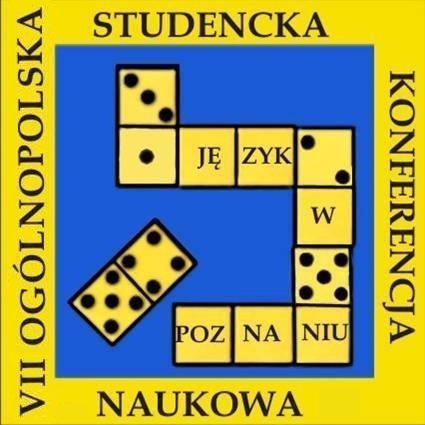VII edycja - abstrakty
Główna |
Organizacja |
Plakat |
Program |
Abstrakty |
Galeria |
Wytyczne |
Ankieta |

Prezentujemy listę referentów oraz tytułów wystąpień wraz ze streszczeniami. Zapraszamy do lektury!
Przypominamy, że język, w którym podany jest tytuł, jest równoznaczny z językiem całego wystąpienia.
Pod każdym streszczeniem umieszczony jest skrócony program, dzięki któremu można dowiedzieć się, jakie inne referaty będą wygłaszane podczas danej sekcji.
Michał Rojek (niezależny)
Supporting friends and derogating enemies in gossip, and the problem of gossip veracity: A sociolinguistic and evolutionary perspective
The study discussed in this presentation verified the thesis whether human beings support friends and derogate rivals with information transferred in gossip. The study was primarily sociolinguistic in its nature (Coates 2011; Coupland 2009; Jaworski and Coupland 2005; Pilkington 2011; Thornborrow and Morris 2004), but also approached the discussed problem from an evolutionary perspective - the possibility that the aforementioned behaviours are a manifestation of coalitionary behaviours among our closest relatives, chimpanzees (Pan troglodytes) and bonobo (Pan paniscus) (Dunbar 2004; Hess and Hagen 2012; McAndrew et al. 2007; Mitani 2009; Muller and Mitani 2005).
20 women and 20 men took part in the study, and their task was to share their opinions with the interviewer, whether they considered a fictitious person worthy of being interviewed. The recorded conversations were transcribed and constituted the research material. A set of three independent raters of recordings had to assess on a Likert scale the intentionality of the shared opinions, the reliability of information in those opinions, and the possibility of using the mentioned information in forming one’s disposition and actions regarding the subject of gossip. The analysis of data was both quantitative (logistic regression) and qualitative (Thematic Analysis).
The most important observations were as follow: a) a strong tendency among the participants of the study to support friends and derogate enemies in gossip; b) information not relating directly to the question of interviewing the fictitious person had a strong influence on the assessment of intentionality, whereas it also slightly influenced the assessment of reliability and the possibility of being used; c) reliability and the possibility of being used weakly correlated with each other and both of these variables were dependant on the information from the recording to a significantly smaller degree than when compared to intentionality.
Gdzie i kiedy:
| W tym samym czasie ... 412, 504 | sala: 416 moderacja: Tomasz Mowlik |
| 11:50-12:05 | Michał Rojek - Supporting friends and derogating enemies in gossip, and the problem of gossip veracity: A sociolinguistic and evolutionary perspective |
| 12:05-12:20 | Magdalena Hądzlik-Dudka (UJK) - Swearing in English, German and Polish - a comparative study |
| 12:20-12:35 | Marta Durczak (UAM) - Understanding of orientational metaphors in Turner Syndrome - plan of MA research |
| 12:35-12:50 | dyskusja |